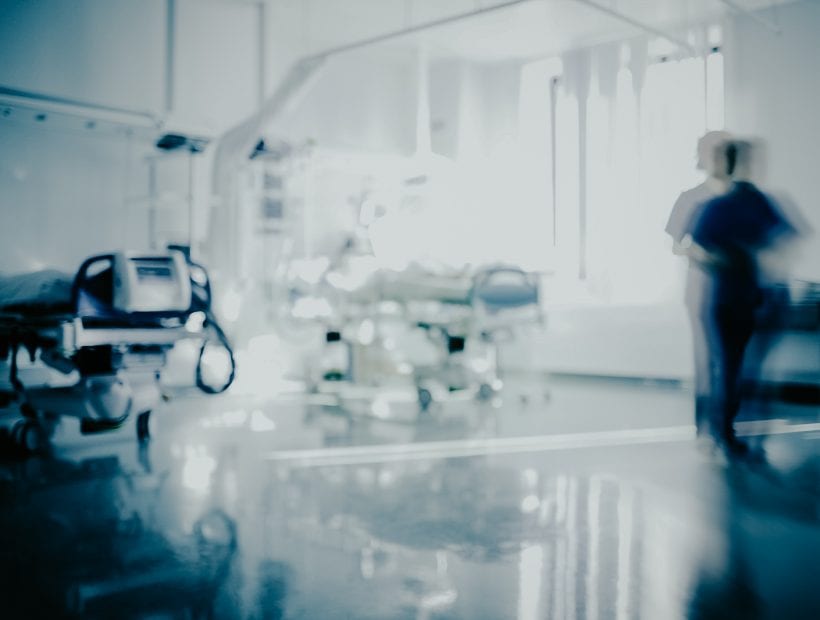Travel Nurse Experience & Advice for Working in COVID-19 Units

“I’m a travel nurse currently on assignment in the state of Washington, one of the states with high rates of those infected with COVID-19.”
Nurses Share Coronavirus Stories
There’s a certain level of isolation travel nurses experience; they’re far from home and without their typical support systems. Now add a pandemic that requires social distancing. When we share stories, we create bonds of familiarity. We learn that we’re not alone in our experiences — that’s why our nurses are sharing their experiences working on the frontlines of COVID-19.

Emergency Department & Float, Washington
“I’m a system float. I’m usually in the ED, but since everything changed, I’ve been working the COVID-19 unit strictly. Instead of working from home, healthcare providers like myself will continue to come to work, no matter what. We come to work to care for your loved ones — those with illness and disease unrelated to the virus, and knowingly with those who have it.
Last week, the hospital I work at went on restriction as we began to run out of masks. But no worries, every day we come to work with solutions. As things have rapidly progressed, we had to make multiple changes in policy, procedure, and the way we care for our patients.
As healthcare providers, we don’t run away from danger; we run straight to it! We don’t tremble in our boots, we lace them up for battle, knowing we don’t have time for fear at the moment. But we must provide a solution to care for you, yours, and others. That’s what we signed up to do.
So, the next time you see a healthcare provider — EMT, nurse, doctor, NP, PA, RT, etc. — thank them and send out a quick prayer for love and protection as we continue to care for everyone who needs it.”

MedSurg Unit, South Carolina
“Up until recently, my workflow hadn’t changed much. The hospital is not allowing visitors, which mostly just annoyed patients not affected by COVID-19. Currently, I’m working on the floor that is treating the patients who are awaiting test results. The donning and doffing of PPE is time-consuming and makes it more difficult to do regular tasks. There is more of an awareness of what I need before going into a room, and it’s not uncommon for my well-meaning patient to send me out for something innocuous, like juice, even though I asked them before I entered the room if they need anything.
For the most part, everyone is pitching in to help one another where they can. There has been a lot of discussion about everyone’s post-shift cleanup and scrub sanitation. I bought a large tub at Wal-Mart for $3.00 and brought a can of Lysol to clean my shoes before I get in the car. As for the scrubs, directly into the washer they will go. There’s also the occasional meme or Tik Toc that makes everyone laugh. The hardest part about treating COVID is that there is little to no precedent on symptom treatment, so we toss ideas around.
I wish I could say, “this too shall pass”; in all honesty, I’m not sure I can. Sometimes I have visions of large tents set up treating patients like it’s an episode of MASH, only Alan Alda isn’t there to crack a timely joke. I think to get to whatever the other side of this will be, we just need to support each other, laugh when possible, cry when needed.
It’s a scary time for everyone, especially the patients. I can’t express enough how important it is to not come to the hospital unless they absolutely have to. Respect the ‘stay at home’ orders and quarantine rules. Healthcare is treading in some uncharted waters, and we’re scared too.”
Emergency Department, Rhode Island
“The basics of our job haven’t changed. 90% of our job remains the exact same. We have to enter through separate doors. We have to screen patients differently: some patients never get out of their car but talk to a physician over the phone. Oh, and we have to wear a lot more layers in some rooms, but the overall premise of our job has not changed. We are making a conscious effort to keep our negative pressure rooms open and available for people in respiratory distress that might need intubation or to be put on BiPAP. In all honesty, our workload is MUCH lighter in the ER right now because all of our “not sick” people are staying home. It results in a much lighter volume, but we have a heavy acuity in our units. The people coming in are SICK, and requiring a lot of staff to stabilize them safely.
I am doing well. Some hours feel heavy and unknown, but overall I think I am just fine. As morbid as it sounds, we are used to dealing with horrible situations and dying people; this does have a different filter to it, though. But I think, for the most part, my staff is doing well. The biggest concern seems to be carrying it home to our families.
My personal biggest sadness is that I moved all the way out here two weeks ago to be close to my family, and now I can’t see them. So that’s rough, and their kids are pretty young and can’t really grasp why. I have been picking up a bunch of overtime because I literally have nothing else to do.
To my other nurses: We are in it together. Take the extra time to take care of yourself. Conserve supplies accordingly. Help spread the news to the general public.”

CVICU, Illinois
“My specialty is a procedural area, so our schedules have pretty much been tossed out the window. I’m assigned a team– I’m blue team! We’re assigned to cover procedures on certain days; otherwise, the rest of the time is unknown. I’ve been picking up in the ICU since I have that experience.
Some of my coworkers have been out of bedside nursing and in the procedural area for a while. It’s hard because they need training back to the bedside and fast — which, we’re still figuring out how that will work.
I’ve been getting by, keeping myself busy. Like I said, I have recent ICU experience, so I’ve been picking up in the ICU. If they don’t need me, I’ve floated the ED as well.
To my other nurses: Don’t be a hero. You already are, but you have to take care of yourself too because, over time, some of us will get sick, and more work will be required of nurses. It’s a marathon, not a sprint.”
Tele, Maine
“Covid19 has been slow to reach us here in Maine. The southern part of the state has been affected more than here in Bangor, where I am working. So far at work, we have had many ‘rule-out’ Covid19 patients and have, fortunately, have not had any positives come back.
Our hospital has been preparing for the inevitable first positive patients by specifying a single unit to treat positive patients. They are cross-training from other units, so there will be more nurses to take care of really sick patients. They have decreased the amount of visitors patients can have: only one visitor from 10 am-7 pm, if the visitor leaves, then that is it for the day.
With all of the preparation and social distancing, work has been slow. The hospital has actually been a little overstaffed. But the scary part is we feel that this is the “calm before the storm.” I can’t help but feel guilty about the good staffing conditions. I’m almost ashamed to say that I haven’t had to take care of any Covid19 patients. In a lot of ways, I feel like I’m not doing my part, especially when I watch, read, and hear about how so many fellow nurses and medical staff are desperate for help. And then, at the same time, I am also thankful that I have not been exposed to this virus because I am scared for myself and my loved ones. My mom is a nurse back home in Texas. The hospital she works at has 14 cases, and all I want to do is go home and take her place at work; that way, she doesn’t have to be exposed to the virus.

I’m so scared for her. I take one day at a time. I want to stay informed, but I’m trying my best not to overly watch the news because my heart can’t take it. FaceTime has been a lifesaver for staying connected to my family. I’m definitely more homesick than I have ever been before while being a travel nurse. I’m also so thankful I have Rainier by my side. And of course, I can’t forget our dog Uconn; snuggles on the couch have never been better!
I want my patients to know that I will do my absolute best to take care of them in their time of need. I am scared that patients who need medical care not related to Covid19 will not seek help, and or we will reach a point where we can not care for those patients. But we will not stop!”
My fellow nurses, we are in this together. We will fight the fight until the fight is over. Thank you for going to the frontlines every day and night. I believe with all my heart that we will be victorious and we will all come out better nurses!”
PCU, Connecticut

- Bring a clean change of clothes with you to work and change into it before you leave the hospital.
- Put your scrubs into a bio bag or garbage bag or ziplock and keep them in there until they can be washed.
- Try to avoid wearing cloth shoes — bust out those Crocs or Danskos because they can be wiped down with bleach or cavi wipes to be sanitized.
We want to share your stories! Submit your stories here, and we’ll be in touch.






